CARL GUSTAV
Jung
Key Figures in Counselling and Psychotherapy
Series editor: Windy Dryden
The Key Figures in Counselling and Psychotherapy series of books provides a concise, accessible introduction to the lives, contributions and influence of the leading innovators whose theoretical and practical work has had a profound impact on counselling and psychotherapy. The series includes comprehensive overviews of:
Sigmund Freud
by Michael Jacobs
Eric Berne
by Ian Stewart
Carl Rogers
by Brian Thorne
Melanie Klein
by Julia Segal
Fritz Perls
by Petr ska Clarkson and Jennifer Mackewn
ska Clarkson and Jennifer Mackewn
Aaron T. Beck
by Marjorie E. Weishaar
Albert Ellis
by Joseph Yankura and Windy Dryden
Joseph Wolpe
by Roger Poppen
George Kelly
by Fay Fransella
D. W. Winnicott
by Michael Jacobs
J. L. Moreno
by A. Paul Hare and June Rabson Hare
Milton H. Erickson
by Jeffrey K. Zeig and W. Michael Munion
Carl Gustav Jung
by Ann Casement
CARL GUSTAV
Jung
Ann Casement

Ann Casement 2001
First published 2001
Apart from any fair dealing for the purposes of research or private study, or criticism or review, as permitted under the Copyright, Designs and Patents Act 1988, this publication may be reproduced, stored or transmitted in any form, or by any means, only with the prior permission in writing of the publishers or, in the case of reprographic reproduction, in accordance with the terms of licences issued by the Copyright Licensing Agency. Inquiries concerning reproduction outside those terms should be sent to the publishers.

| SAGE Publications Ltd
6 Bonhill Street
London EC2A 4PU |
SAGE Publications Inc.
2455 Teller Road
Thousand Oaks, California 91320 |
SAGE Publications India Pvt Ltd
32, M-Block Market
Greater Kailash I
New Delhi 110 048 |
British Library Cataloguing in Publication data
A catalogue record for this book is available from the British Library
ISBN 0 7619 6237 9
ISBN 0 7619 6238 7 (pbk)
Library of Congress Control Number: 2001131024
Typeset by Mayhew Typesetting, Rhayader, Powys
Printed in Great Britain by Biddies Ltd, Guildford, Surrey
Contents
Preface
The past is terribly real and present. (Jung, 1963: 108)
Jungs contribution to psychology and to the history of ideas has stood at the centre of my life since 1964 when I started my first Jungian analysis in London. This led many years later to my training as a Jungian analyst. I have often heard people referring to Jungs writings as mystical and impenetrable, and am only too aware of the challenge of trying to make them accessible without over-simplifying the essential complexity of his approach. Related to this, it is vital not to do damage to these ideas by too hasty a summary and, while writing this, I have tried to keep before me what Jung wrote in Latin in one of my supervisors, Gerhard Adlers, copy of the first book of the English Collected Works, Psychology and Alchemy: All haste is of the devil. This was an expression of his dissatisfaction with the finished product which had been years in the making.
It is also important to note here that although this account is written with respect for a remarkable man, it is not a hagiography but contains aspects of Jungs shadow. I have increasingly come to realize how important his own work in the area of shadow is for humankinds present and future. My own growing fascination with shadow aspects of psyche has resulted in my writing and lecturing about them. To quote Jung himself: It fares with us all as with Brother Medardus in Hoffmanns tale The Devils Elixir: somewhere we have a sinister and frightful brother, our own flesh-and-blood counterpart, who holds and maliciously hoards everything that we would so willingly hide under the table (Jung, 1966: 39). And elsewhere: Wholeness is not so much perfection as completeness Recognition of the shadow is reason enough for humility, for genuine fear of the abysmal depths in man (Jung, 1966: 239).
On the other hand, this book is not an exercise in desecrating Jung along the lines of the kind of tabloid sensationalism that has been written about him in recent times. Although it touches on the subject of the women in his life, it has to be said that there is no clear-cut evidence to support allegations that Jung had affairs with women patients and it is important to bear in mind that he was above all a moralist. Another highly controversial area surrounding Jung is the charge of Nazism combined with anti-Semitism and a selective coverage of the responsible literature on the subject is explored in the course of the book.
The Jungian community is a large, heterogeneous mix composed of countless numbers of people. The specialized practitioners make up a small proportion of this and, at the moment of writing, 2,300 analytical psychologists are gathered together under the umbrella of the International Association for Analytical Psychology (IAAP) which has its headquarters in Zurich, whilst many other practitioners are not members of the IAAP. These all use different titles to describe themselves, for example, analytical psychologist, Jungian analyst, Jungian psychoanalyst, Jungian psychotherapist, and therapist. These practitioners mostly use the term patient or analysand for the individuals they work with therapeutically, so I will be using these terms where necessary throughout the book.
I have made extensive use of the 20 volumes of the English Collected Works of Jung published by Routledge. In some instances, I have instead used the Princeton University Press edition. These 20 volumes were edited by Sir Herbert Read, Michael Fordham and Gerhard Adler, and translated into English by R.F.C. Hull. They encapsulate the evolution of Jungs interest as it transferred itself from psychiatry through psychoanalysis and typology to the theory of archetypes held together by his abiding interest in the psychology of religious motifs.
I would like to thank Princeton University Press, Random House Group and Taylor & Francis incorporating Routledge for their kind permission in allowing me to use lengthy extracts from the Freud/Jung Letters edited by William McGuire.
A word of caution is in order here with regard to all the published writings of Jung, including the Collected Works. All of these differ from the unpublished original manuscripts according to the Jung scholar, Sonu Shamdasani, and, in some cases the difference is marked. Another point worth noting is that there are in existence more than 20,000 unpublished letters by Jung.
In this book, I am not attempting to cover Jungs vast opus or the myriad formative encounters he had with other disciplines. I have made my own selection in both these areas and hope the end result might stimulate the readers interest in analytical psychology.
Although many of the terms that Jung used in his approach to the psyche are now in everyday usage, for example, extravert and introvert, these are used by him in a specific way. In order to elucidate what Jung was writing about, the book includes definitions of his main concepts.
Finally, a brief word on the writing style adopted in the book: in trying to avoid clumsy devices like his/her or he/she, I have used their or they where necessary. Jargon terms are set in italics except for those that are in everyday usage like ego.
Next page

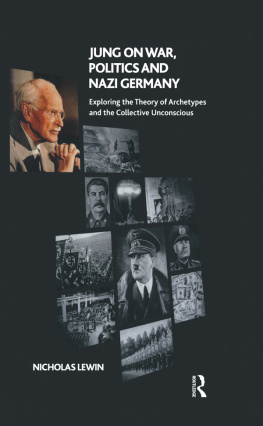
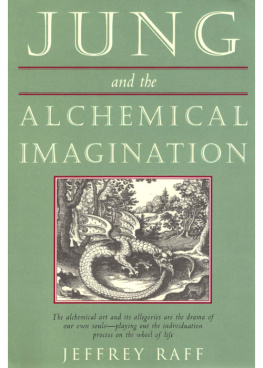
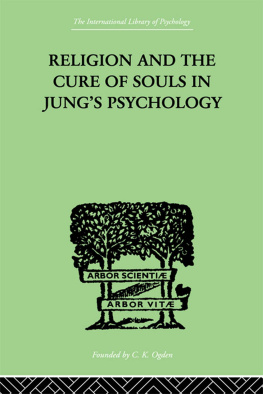

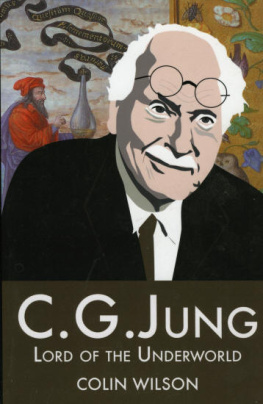

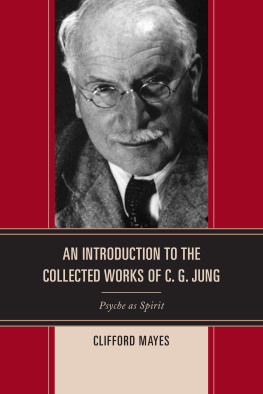
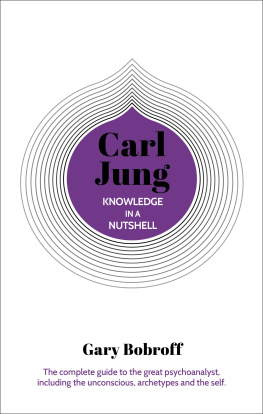
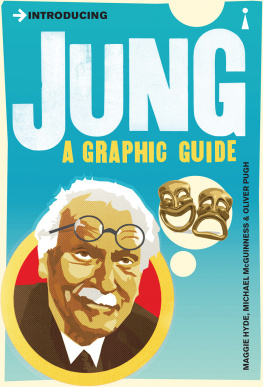
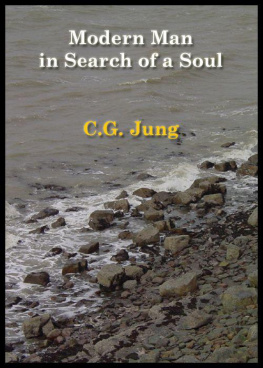
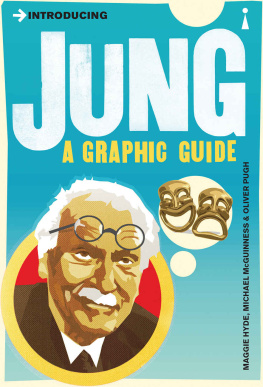
 ska Clarkson and Jennifer Mackewn
ska Clarkson and Jennifer Mackewn
